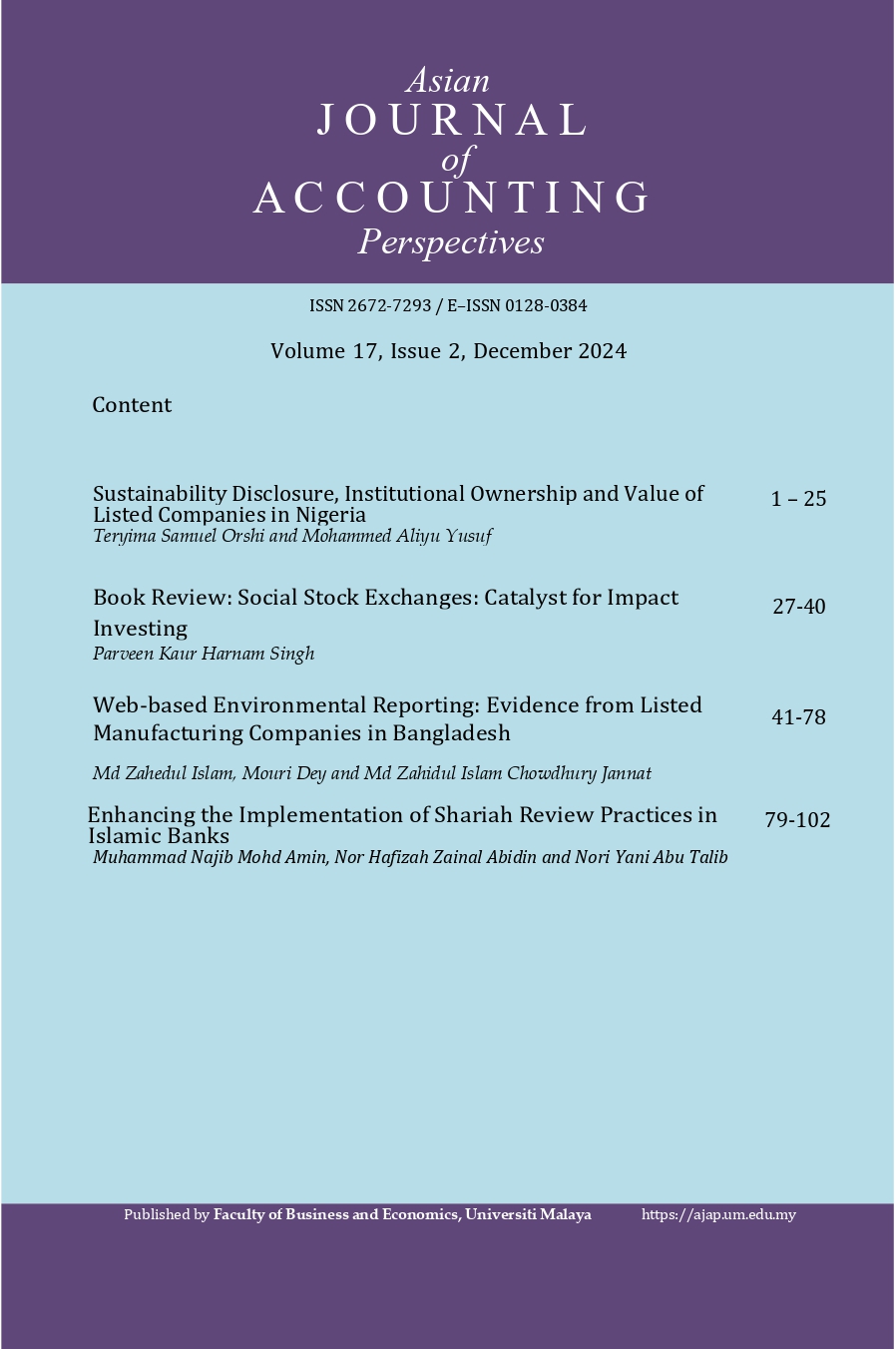Enhancing the Implementation of Shariah Review Practices in Islamic Banks
Main Article Content
Abstract
Research aim: BThe aim of the present study is to understand how Shariah review practices
are being implemented by gathering the perceptions of Shariah officers at different Islamic
banks (IBs). This is done through analysis of similarities and differences of Shariah review
practices across different IBs.
Design/ Methodology/ Approach: Data was gathered through semi-structured interviews
with six Shariah officers, including managers and executive levels from five different IBs.
Research finding: Utilising an institutional perspective, the findings suggest that coercive
isomorphism through comprehensive guidelines on Shariah review practices promote
consistent implementation of Shariah review procedures. In addition, the findings reveal
that systematic communications of issues in Shariah review findings to the management
and reporting the final findings to a Shariah committee is crucial in minimising threats
of independence. Finally, timeliness in reporting and leveraging on other functions is
proposed to enhance the effectiveness of Shariah review practices.
Theoretical contribution/Originality: This study applies institutional theory in assessing
of how Shariah review practices are being implemented in Malaysian IBs. Comparatively,
most prior studies utilise agency theory, which considers Shariah review practices as an
oversight function in IBs.
Practitioner/Policy implication: Insights from this study underline the importance of
comprehensive guidelines on Shariah review practices. This is because they enhance the
standardisation of practices which improves the comparability, understandability, and
quality of the work performed by Shariah officers. The study also suggests that IBs revisit
their leveraging models to ensure efficient coordination of resources and improve reporting
to their Shariah committees.
Originality/value: This study contributes to the literature on the establishment of the
Shariah review function and internal modules of Shariah review practices through
normative, coercive, and mimetic isomorphisms.
Downloads
Article Details
License
The Asian Journal of Accounting Perspectives (AJAP) articles are published under a licence equivalent to the Creative Commons Attribution-NonCommercial-NoDerivs License (CC BY-NC-ND). The licence allows users to copy, distribute, and transmit an article as long as the author is attributed. The article is not used for commercial purposes. The work is not modified or adapted in any way.
Copyright
Authors are required to sign the Exclusive License to Publish agreement upon publication in the AJAP. The agreement grants the Publisher (Faculty of Business and Accountancy, Universiti Malaya) to publish and disseminate the articles.
Open Access
Articles published in the AJAP are digital, online, free of charge, and free of most copyright and licensing restrictions.
Article Processing Charge
Articles publish in AJAP is free submission, production and publication charges. However, all accepted articles are required for language editing. The AJAP officially appointed and outsourced proofreader will conduct this process, and the authors will cover the cost. AJAP does not profit from this process and transaction.

